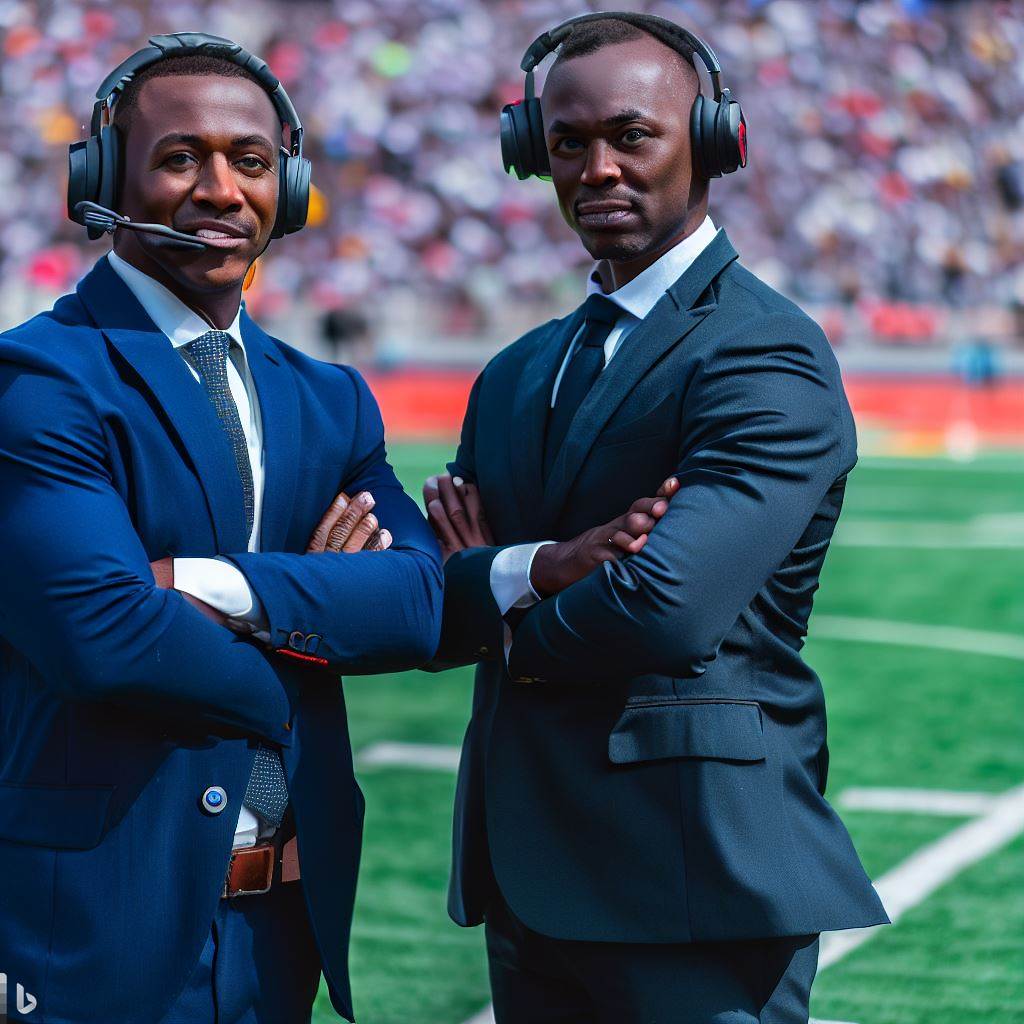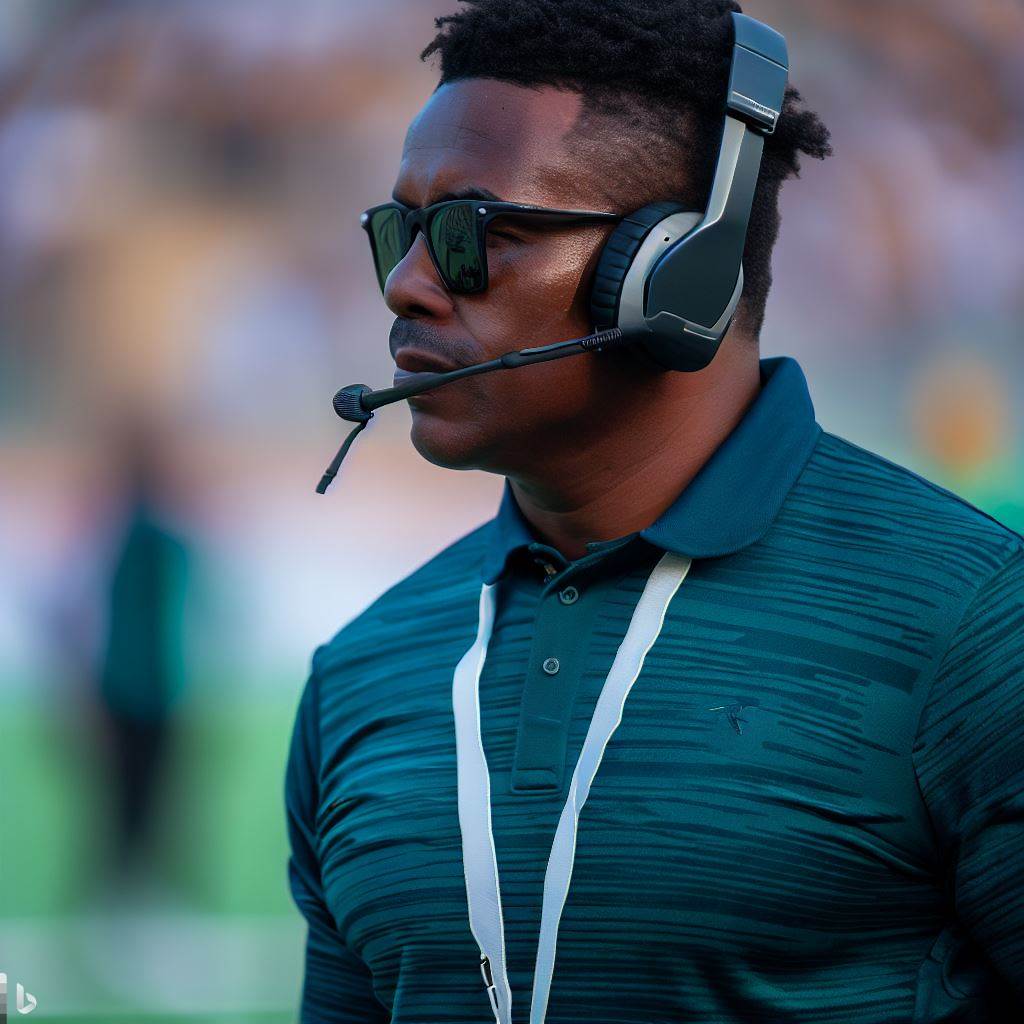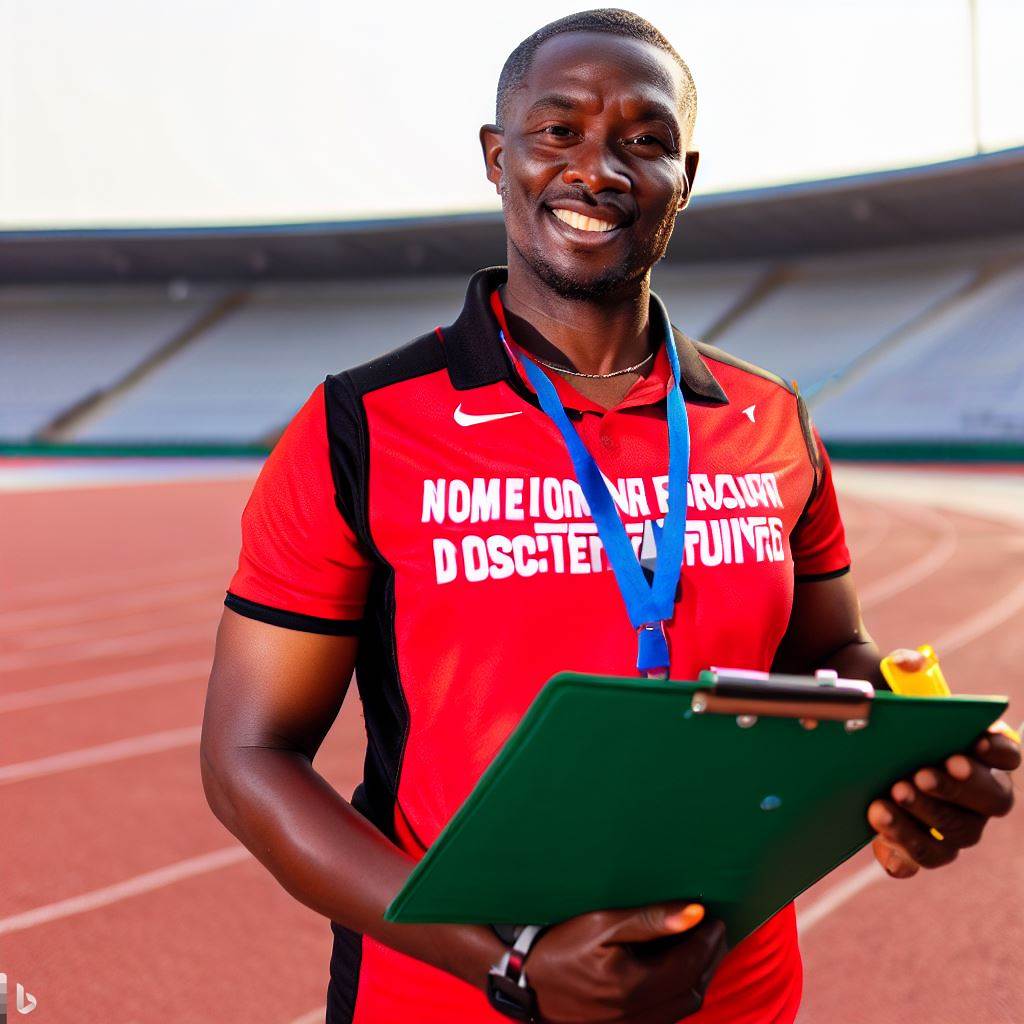Introduction
Embarking on a sports management journey is like diving into a world of limitless possibilities.
Athletic directors play a pivotal role in the success of sports programs, overseeing every aspect from logistics to finances.
In Nigeria, where the sports industry is rapidly expanding, the role of an athletic director is more crucial than ever.
A. Why Choose a Career in Sports Management?
- Passion-Driven: Working in sports allows you to channel your passion into a rewarding career.
- Diverse Opportunities: Sports management offers a wide range of career options, from event planning to talent scouting.
- Impact: Athletic directors have a direct impact on athletes’ development and the growth of sports in Nigeria.
B. The Role of an Athletic Director
- Leadership: ADs lead the way, setting the tone for their teams and organizations.
- Administration: They handle budgets, schedules, and compliance, ensuring the smooth operation of sports programs.
- Community Engagement: Building relationships within the local community is vital for success.
C. The Nigerian Context
- Growing Sports Industry: Nigeria’s sports industry is booming, presenting immense opportunities for skilled athletic directors.
- Challenges: Amidst growth, challenges like funding and infrastructure development need dedicated professionals.
In this guide, we’ll delve deeper into the journey of becoming an athletic director in Nigeria, navigating the challenges and seizing the opportunities in this vibrant sports landscape.
Responsibilities of an Athletic Director
A career as an Athletic Director in Nigeria comes with a myriad of responsibilities.
Let’s dive into some of the core tasks and duties that this position entails:
1. Managing the overall athletic program
As an Athletic Director, one of your primary responsibilities is to oversee the entire athletic program within your institution.
This involves coordinating and supervising various sports teams and ensuring their smooth functioning.
2. Budgeting and financial management
Another crucial aspect of being an Athletic Director is handling the financial side of the athletic department.
You are responsible for developing and managing budgets to support the program’s needs, which include equipment, travel expenses, facility maintenance, and more.
3. Hiring and supervising coaches and staff
An important duty of an Athletic Director is selecting qualified coaches and staff members to guide and train the student-athletes.
You oversee their work, provide feedback, and ensure they adhere to the department’s policies and expectations.
4. Facility management and scheduling
Maintaining and managing the athletic facilities, such as stadiums, arenas, and training grounds, falls under the jurisdiction of an Athletic Director.
You are responsible for scheduling practices, games, and events, ensuring proper maintenance, and promoting a safe environment for athletes.
5. Promoting and marketing the athletic department
Effective promotion and marketing play a vital role in the success of any athletic department.
As an Athletic Director, you need to develop strategies to increase awareness, attendance, and fan engagement through various channels such as social media, community events, and partnerships.
These responsibilities collectively contribute to the efficient and effective management of an athletic department in Nigeria.
Being an Athletic Director requires exceptional leadership skills, a passion for sports, and a commitment to the holistic development of student-athletes.
Read: Roles of Athletic Directors in Nigeria’s Sports Scene
Educational Requirements and Skills
A successful career as an Athletic Director in Nigeria requires specific educational qualifications and a set of skills.
Here are the key requirements:
1. Academic qualifications in sports management or related field
To become an Athletic Director, it is crucial to have a solid academic foundation in sports management or a related field.
This typically involves obtaining a bachelor’s degree in sports science, physical education, or a similar discipline.
2. Knowledge of sports industry trends and best practices
Staying up-to-date with current trends and best practices in the sports industry is essential for an Athletic Director.
This knowledge helps in strategic planning, decision-making, and keeping the athletic programs in line with industry standards.
3. Strong organizational and managerial skills
As an Athletic Director, you’ll be responsible for overseeing and managing various aspects of the athletic department.
This requires exceptional organizational and managerial skills to handle administrative tasks, budgeting, scheduling, and facility management efficiently.
4. Excellent communication and interpersonal skills
Building strong relationships with coaches, athletes, parents, and other stakeholders is vital for an Athletic Director.
Effective communication and interpersonal skills enable you to convey your vision, motivate others, resolve conflicts, and establish productive partnerships.
5. Leadership and team-building skills
As an Athletic Director, you’re responsible for leading and guiding the entire athletic department.
Possessing strong leadership skills enables you to inspire and empower coaches and athletes to reach their full potential.
These educational requirements and skills form the foundation for a successful career as an Athletic Director in Nigeria.
By acquiring the necessary qualifications and honing your skills, you can excel in this rewarding role and contribute to the development of sports in the country.
Read: Qualities of Successful Assistant Coaches in Nigeria
Gaining Experience in the Field
A. Internships and volunteering opportunities
- Seek internships with sports organizations to gain practical experience.
- Volunteer at local sporting events to develop a network and learn from professionals.
- Participate in community programs to showcase your dedication to sports management.
B. Networking within the sports industry
- Attend industry events, conferences, and workshops to meet professionals and make connections.
- Join sports-related associations and clubs to network with like-minded individuals.
- Build relationships with coaches, athletes, and administrators to expand your network.
C. Joining relevant professional organizations
- Join associations such as the Nigeria Olympic Committee or the Nigerian Institute for Sports to access resources and opportunities.
- Become a member of international sports management organizations for a broader perspective.
- Participate actively in association activities to gain recognition in the field.
D. Attending seminars, conferences, and workshops
- Attend sports management seminars to learn about the latest trends and best practices.
- Participate in conferences that focus on athletic administration to gain valuable insights.
- Benefit from workshops that enhance your leadership, communication, and problem-solving skills.
E. Utilizing online platforms and resources
- Join online forums and discussion groups to connect with professionals and experts in the field.
- Use online resources, such as webinars and podcasts, to stay updated on industry developments.
- Take advantage of online courses and certifications to expand your knowledge and credentials.
Gaining experience in the field is crucial to becoming a successful athletic director in Nigeria.
By leveraging various opportunities, you can develop the necessary skills and network to excel in this role.
Internships and volunteering provide hands-on experience, while networking connects you with professionals and mentors.
Joining relevant professional organizations enables access to valuable resources, and attending seminars, conferences, and workshops keeps you updated on industry trends.
Lastly, utilize online platforms and resources to enhance your knowledge and credentials.
With a determined and proactive approach, you can pave your way to a fulfilling career as an athletic director in Nigeria.
Read: Technology’s Role in Assistant Coaching in Nigeria

Challenges and Opportunities in Nigeria
Athletic directors in Nigeria face a unique set of challenges and opportunities in their quest to develop and promote sports in the country.
A. Limited infrastructure and resources
One of the biggest challenges athletic directors in Nigeria encounter is the limited infrastructure and resources available for sports development.
Many schools and communities lack proper sporting facilities, hindering the growth of athletic programs.
These directors must find creative ways to work with the available resources, such as organizing outdoor games or utilizing multipurpose spaces.
B. Overcoming cultural and gender biases
In a society where traditional gender roles are still prevalent, athletic directors must navigate cultural biases and overcome gender stereotypes.
Encouraging girls to participate in sports and breaking down societal barriers requires a concerted effort.
Directors can organize awareness campaigns to promote inclusivity and challenge societal norms.
C. Harnessing the potential of grassroots sports
Grassroots sports offer a wealth of untapped talent in Nigeria.
Athletic directors have the opportunity to identify and nurture young athletes at the grassroots level.
By organizing scouting programs and talent identification initiatives, they can provide pathways for promising individuals to reach their full potential and represent Nigeria at national and international competitions.
D. Tapping into corporate sponsorships and investments
Securing financial support is vital for the growth of sports programs.
Athletic directors must establish strong connections with corporate organizations, seeking both sponsorships and investments.
By presenting a clear vision and demonstrating the value of sports in Nigeria, directors can attract corporate entities to support and invest in the development of athletes and infrastructure.
E. Establishing collaborations with international organizations
Collaborating with international organizations can bring significant benefits to athletic directors in Nigeria.
These partnerships provide opportunities for knowledge sharing, resource exchange, and exposure to best practices in sports management.
Directors should actively seek out opportunities for collaboration and networking within the international sports community.
In review, while athletic directors in Nigeria face various challenges, they also have numerous opportunities to make a positive impact on sports development.
By creatively utilizing limited resources, challenging cultural biases, harnessing grassroots potential, seeking corporate sponsorships, and establishing international collaborations, they can drive the growth of sports in Nigeria and pave the way for future generations of athletes.
Read: Assistant Athletic Trainer Jobs: Opportunities in Nigeria
Steps to Becoming an Athletic Director in Nigeria
A. Pursuing relevant education and certifications
To become an athletic director in Nigeria, it is essential to start by acquiring the right education and certifications.
- Research and identify universities or colleges that offer relevant sports management or athletic administration programs.
- Apply to your chosen institution and complete the necessary admission requirements.
- Enroll in courses that cover subjects such as sports marketing, finance, event management, and leadership.
- Obtain any required certifications in sports management or athletic administration.
B. Gaining practical experience through internships or entry-level positions
While education is crucial, real-world experience is equally important for aspiring athletic directors.
- Seek internship opportunities with universities, sports organizations, or local athletics departments.
- Apply for entry-level positions within college athletics departments or professional sports organizations.
- Gain experience in various roles such as event coordination, marketing, budgeting, and facility management.
- Develop skills in communication, leadership, problem-solving, and decision-making through hands-on experience.
C. Building a strong professional network
Networking plays a vital role in the field of athletic administration, opening doors to potential job opportunities and collaborations.
- Attend conferences, seminars, and workshops related to sports management and athletic administration.
- Join professional organizations such as the Nigerian Association for Sports Administration (NASA).
- Participate in sports industry events and connect with professionals, coaches, and other athletic directors.
- Utilize social media platforms to connect with individuals in the field and stay updated on industry trends.
D. Continuous learning and staying updated with industry developments
The world of sports is dynamic, and it is crucial for athletic directors to stay informed about the latest trends and advancements.
- Engage in professional development opportunities to enhance your knowledge and skills.
- Attend workshops or seminars that focus on topics like sports marketing, compliance, and sports law.
- Subscribe to relevant industry publications and join online forums or communities.
- Stay updated with the Nigerian sports scene, including regulations, policies, and emerging talent.
By following these steps and maintaining a strong dedication to the field, you can pave your way towards a successful career as an athletic director in Nigeria.
Conclusion
A career as an Athletic Director in Nigeria can be a challenging but fulfilling path.
Through this article, we have explored the necessary steps and qualifications to pursue this profession.
To recap, aspiring Athletic Directors should start by obtaining a bachelor’s degree in a related field such as sports management or administration.
Then, gaining experience through internships or entry-level positions in sports organizations is crucial.
As we conclude, I hope this article has inspired you to pursue your passion in sports administration.
The role of an Athletic Director is not only about managing sports programs but also about making a positive impact on athletes’ lives.
Furthermore, we should encourage the growth of the sports industry in Nigeria.
By supporting local athletes, organizing competitions, and promoting sports in schools, we can cultivate a vibrant sports culture in our country.
In closing, I invite you to take action and explore opportunities in the sports industry.
Whether as an athlete, coach, or sports administrator, your contribution can make a difference.
Together, let’s work towards building a thriving sports community in Nigeria.




